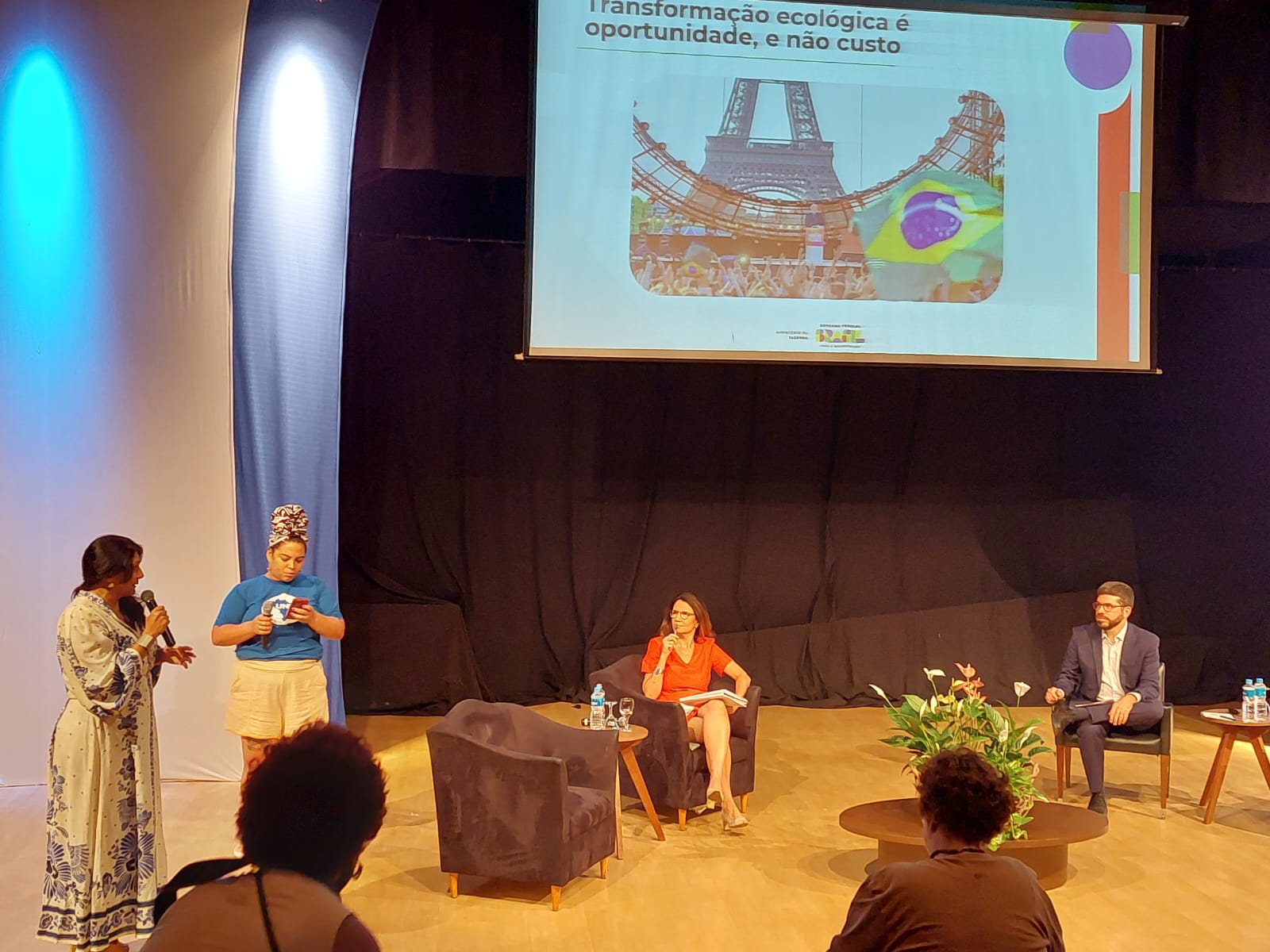Launched in August 2023 by the Ministry of Finance, the Plan for Ecological Transformation (Plano para a Tranformação Ecológica) is a proposal for socioeconomic development based on criteria that guarantee the conservation of natural resources and the fight against the climate crisis. “The Plan aims to promote a sustainable future, addressing critical topics discussed at the meeting, such as bioeconomy, energy transition, circular economy, technological densification, sustainable finance, development of new green infrastructure and adaptation” (Ministry of Finance). Among the themes of the plan are the creation of a regulated carbon market, the issuance of sustainable sovereign bonds and the reformulation of the Climate Fund to finance activities that implicate technological innovation and sustainability.
At the event on November 17th, IPÊ, a member of the Climate Observatory, met with other socio-environmental NGOs and social movements to debate this plan and create actions that connect with the reality of traditional populations, indigenous communities, rural producers and, especially, with Brazil’s own socio-biodiversity and its particularities.
Simone Tenório, IPÊ researcher, discussed with participants the structuring of the restoration chain as a way of generating green jobs, tax incentives for the establishment of OMECs (Other Effective Special Conservation Mechanisms – Outros Mecanismos Especiais Eficazes de Conservação) as conservation strategy for the Pantanal, care with local populations on the issue of bioeconomy and structuring of production chains, in addition to specific taxation for socio-biodiversity products.
“The Plan is an important step because it unites the numerous sectors and ministries under the vision of growth and development within a nature perspective, considering the need for conservation and regeneration of ecosystems. Faced with the challenges we are experiencing today, especially with the climate, current investment decisions need to be based on mitigation and adaptation to the climate crisis. One of the issues discussed at the meeting, for example, was how the bioeconomy may apply to populations and communities. We need to ensure that the development of this chain takes place fairly and does not become another commodity that benefits few”, says Simone Tenório, researcher and representative of IPÊ.
The proposals from NGOs and social and environmental movements were taken to the Ministers Fernando Haddad, of Finance and Marina Silva, of the Environment and Climate Change, in an afternoon meeting. Both were at the auditorium of Faculdade Cásper Líbero, in São Paulo, and spoke about their perspectives.
“The plan is dynamic and more complex than one might imagine. This change that we desire will not happen overnight and will take place through trial and error. It is the change that the country needs, considering environmental racism and climate justice”, stated Minister Marina Silva, highlighting the importance of environmental actions considering all populations and being a shared responsibility between all Ministries. Marina recalled that achieving goals such as reducing deforestation depends on more collective participation. “Environmental policy is transversal. Having the finance minister coordinating an ecological transformation plan is important because of its calling power (for the participation of other Ministries)”.
For the Minister, the economy must be based on ecology to guarantee human life on Earth. “Our role is to inform the population that we are in the middle of a (climate) crisis never been seen before. It is necessary to subordinate what we know about the economy to nature so that we can be here for generations to come. It is a mistake to oppose economics and ecology,” he says.
At the end of the meeting, the Ministers accepted a letter signed by 61 NGOs members of the Climate Observatory calling for a global agreement to eliminate fossil fuels. The letter is OC’s positioning for COP28, which starts at the end of this month.


